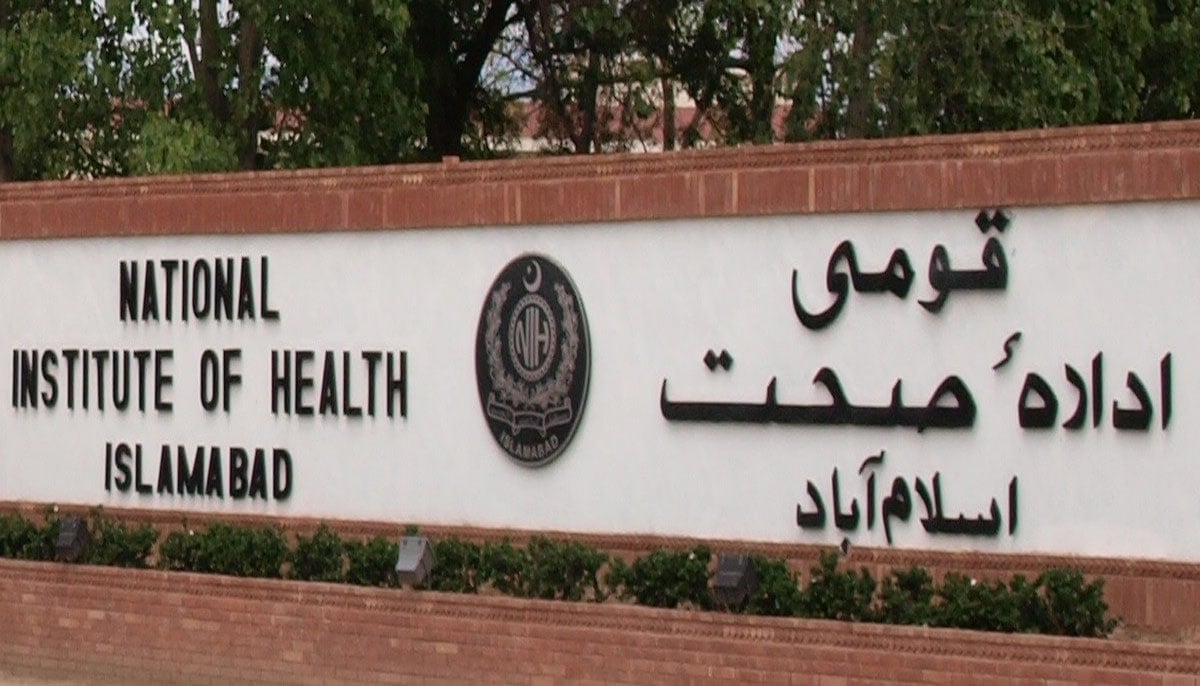NIH issues advisory for prevention of CCHF, Covid-19 around Eid
Islamabad: The movement of sacrificial animals ahead of Eidul Azha significantly carries the risk of the spread of Crimean-Congo Hemorrhagic Fever (CCHF) due to increased human-animal interaction. Moreover, visits to crowded places and direct contact with infectious materials and animals are also expected to amplify the risk of COVID-19 transmission.
Recognising the threats, the Field Epidemiology and Disease Surveillance Division (FEDSD) of the National Institute of Health (NIH) has issued an advisory, alerting various stakeholders including human and animal healthcare providers to take timely steps for the prevention and control of CCHF and COVID-19.
The advisory lists several instructions that need to be adopted for the prevention and control of CCHF since there is currently no vaccine available for the disease.
The instructions include use of full sleeves and light colored clothes, gloves, face masks, and hand sanitizers, practicing of social distancing during visit to cattle markets; frequent hand-washing and hand sanitization to disinfect and clean hands; avoidance of all crowded places including large family gatherings during EID and sacrifice of animals; and thorough washing of hands with soap after coming in contact with animals or their blood.
Moreover, NIH has also issued its 48th Seasonal Awareness and Alert Letter (SAAL) for epidemic-prone infectious diseases. The letter exhibits patterns of high-priority communicable diseases including Cholera, Coronavirus diseases (COVID-19), CCHF, Dengue, Leishmaniasis, Malaria, Measles, Polio and Typhoid XDR.
These diseases are predicted to be on high alert during the said season. It also contains detailed introduction of diseases, case definitions, infectious agents, modes of transmission, case management and prevention.
The main purpose of SAAL is to alert all concerned health authorities and professionals at all levels and to facilitate them for timely and efficient response to outbreaks/epidemics. This letter is developed for summer/monsoon from June to September. NIH has advised the federal, provincial and district health departments as well as other stakeholders to keep a continuous watch on the anticipated seasonal public health threats and to take all preventive or curative measures in this context.
To facilitate stakeholders, the requisite technical guidelines and awareness material regarding infectious diseases along with SAAL and CCHF advisory are available at the NIH website www.nih.org.pk.
-
 Jennifer Garner Reveals Why She Doesn't Like Botox And What She Gets Instead
Jennifer Garner Reveals Why She Doesn't Like Botox And What She Gets Instead -
 Instagram To Alert Parents When Teens Search Suicide Or Self-harm Terms
Instagram To Alert Parents When Teens Search Suicide Or Self-harm Terms -
 Meghan Markle Feels Kicked In The Teeth With Netflix’s Decision To Close A Door: ‘She Needs Her Family’
Meghan Markle Feels Kicked In The Teeth With Netflix’s Decision To Close A Door: ‘She Needs Her Family’ -
 World Economic Forum CEO Borge Brende Steps Down Following Jeffrey Epstein Ties Controversy
World Economic Forum CEO Borge Brende Steps Down Following Jeffrey Epstein Ties Controversy -
 Prince Harry's Ex Chelsy Davy Makes Special Announcement
Prince Harry's Ex Chelsy Davy Makes Special Announcement -
 Dominic Evans Speaks Out After Being Accused Of Being Involved In Nancy Guthrie Kidnapping
Dominic Evans Speaks Out After Being Accused Of Being Involved In Nancy Guthrie Kidnapping -
 AI Doomsday By 2028? New Study Warns Of Global Social, Economic Disruption & ‘ Intelligence Crisis’
AI Doomsday By 2028? New Study Warns Of Global Social, Economic Disruption & ‘ Intelligence Crisis’ -
 Do Sophie And Benedict Bridgerton Get Married As Netflix Show Returns For Season 4 Part 2?
Do Sophie And Benedict Bridgerton Get Married As Netflix Show Returns For Season 4 Part 2? -
 Prince William Reveals He's 'a Little Biased' Toward One Hollywood Star
Prince William Reveals He's 'a Little Biased' Toward One Hollywood Star -
 Meghan Markle, Prince Harry Visit Special Charity On Final Day Of Jordan Trip
Meghan Markle, Prince Harry Visit Special Charity On Final Day Of Jordan Trip -
 Natalie Dormer's Reaction To Sarah Ferguson's Epstein Links Resurfaces After 'The Lady' Release
Natalie Dormer's Reaction To Sarah Ferguson's Epstein Links Resurfaces After 'The Lady' Release -
 Did You Know Famous Windows 10 Background Was Shot In Real Life? Here's Story
Did You Know Famous Windows 10 Background Was Shot In Real Life? Here's Story -
 Pete Davidson's Baby Mommy Elsie Hewitt Reveals Why She 'hated' Being Pregnant
Pete Davidson's Baby Mommy Elsie Hewitt Reveals Why She 'hated' Being Pregnant -
 Harry, Meghan Show Royal Family How To Make Impact Without Public Money
Harry, Meghan Show Royal Family How To Make Impact Without Public Money -
 Hillary Clinton Set For Deposition Before House Committee Today In Jeffrey Epstein Investigation Case
Hillary Clinton Set For Deposition Before House Committee Today In Jeffrey Epstein Investigation Case -
 Samsung Galaxy S26 Ultra Debutes With Display That Blocks Side Viewers
Samsung Galaxy S26 Ultra Debutes With Display That Blocks Side Viewers




